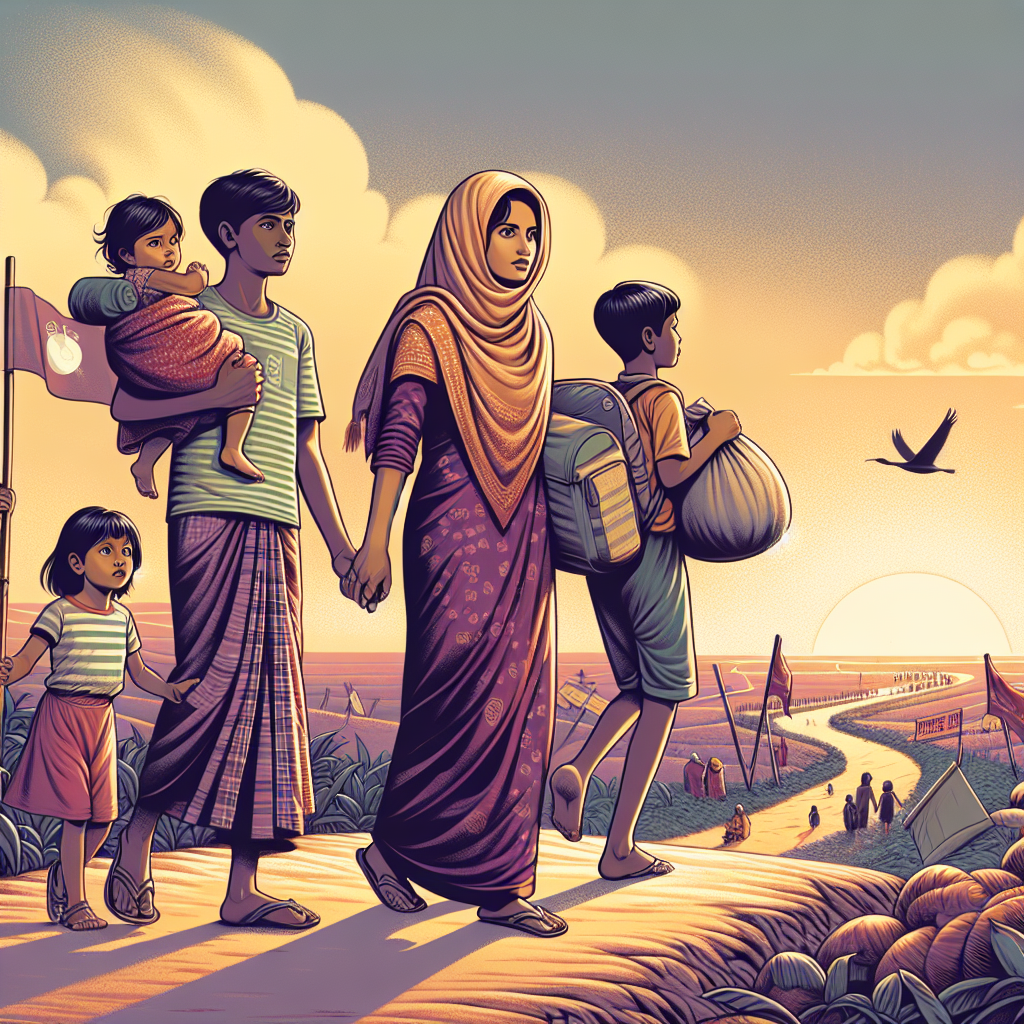Today at COP29, the UN Refugee Agency (UNHCR) unveiled its “Refugees for Climate Action” network, a groundbreaking initiative designed to bring the voices and experiences of displaced communities into the global climate debate. This network gathers eight climate activists from various displaced communities worldwide, each committed to climate action and advocating for the inclusion of refugees and displaced populations in policy discussions and solutions.
In a powerful launch event, UNHCR Goodwill Ambassador Theo James endorsed the network, amplifying UNHCR’s urgent call to recognize and address the unique challenges the climate crisis poses for refugees and displaced communities. Following a recent trip to Mauritania, where he met with climate-impacted communities, James is more committed than ever to elevating these voices in climate policy conversations.
“For refugees, the climate crisis is a matter of survival and dignity,” says Najeeba Wazefadost, a group member and founder of the Asia Pacific Network for Refugees (APNOR), who supports Afghan women’s businesses through solar energy initiatives. “Our communities face climate change every day; it’s urgent that world leaders listen to our stories and include us in solutions that bolster our resilience and empower refugee-led innovations.”
The Refugees for Climate Action network includes members from diverse backgrounds and expertise, representing countries such as Afghanistan, Yemen, Haiti, Bangladesh, and Brazil. Together, these individuals bring a wealth of knowledge in areas like solar energy, sustainable agriculture, nature conservation, disaster resilience, environmental education, and climate technology. Among them are:
Mohammed Anowar, a Rohingya refugee in Bangladesh, who trains fellow refugees on flood preparedness and resilience in Cox’s Bazar.
Eman Al-Hamali, an internally displaced woman from Yemen, who leads a solar microgrid initiative that provides affordable and sustainable energy to vulnerable families.
Ermano Prévoir, a Haitian agronomist now in Brazil, focusing on sustainable farming to improve food security and environmental stability in his community.
Opira Bosco Okot, another member and refugee climate advocate in Uganda, uses communication technologies to engage refugees in climate discussions. “War has shown us the devastation of losing our homes,” he says, “and now we face a global climate crisis. We’re uniting to tackle these challenges together, driven by a commitment to our communities and the planet.”
According to the International Energy Agency (IEA), forcibly displaced communities are increasingly experiencing the brunt of climate change, with record-breaking droughts, floods, and severe storms leading to new patterns of displacement and conflict over resources. UNHCR estimates that over 20 million people have been displaced each year since 2010 due to weather-related disasters, with the numbers rising. This reality has driven UNHCR’s commitment to position refugees and displaced persons as crucial contributors to climate action.
The Refugees for Climate Action group aims to serve as a consultative body on climate issues, advising on strategies to integrate refugee perspectives into UNHCR’s broader climate work and key international climate platforms. UNHCR provides group members with targeted training and capacity-building opportunities to further strengthen their advocacy skills and expand their impact on the global stage, including at events like COP29.
James emphasizes that the resilience of refugees must be at the heart of climate discussions. “I’ve seen the profound effects of the climate crisis on displaced communities, but I’ve also seen their strength. Refugees like Opira are calling on leaders to listen, and the Refugees for Climate Action network is here to make that happen. It’s an honour to be part of this initiative, working to make refugee voices central to climate action,” he says.
The Refugees for Climate Action initiative symbolizes UNHCR’s resolve to ensure that those most affected by climate change are empowered to shape climate policies and actions, reinforcing a more inclusive and resilient future for all.











